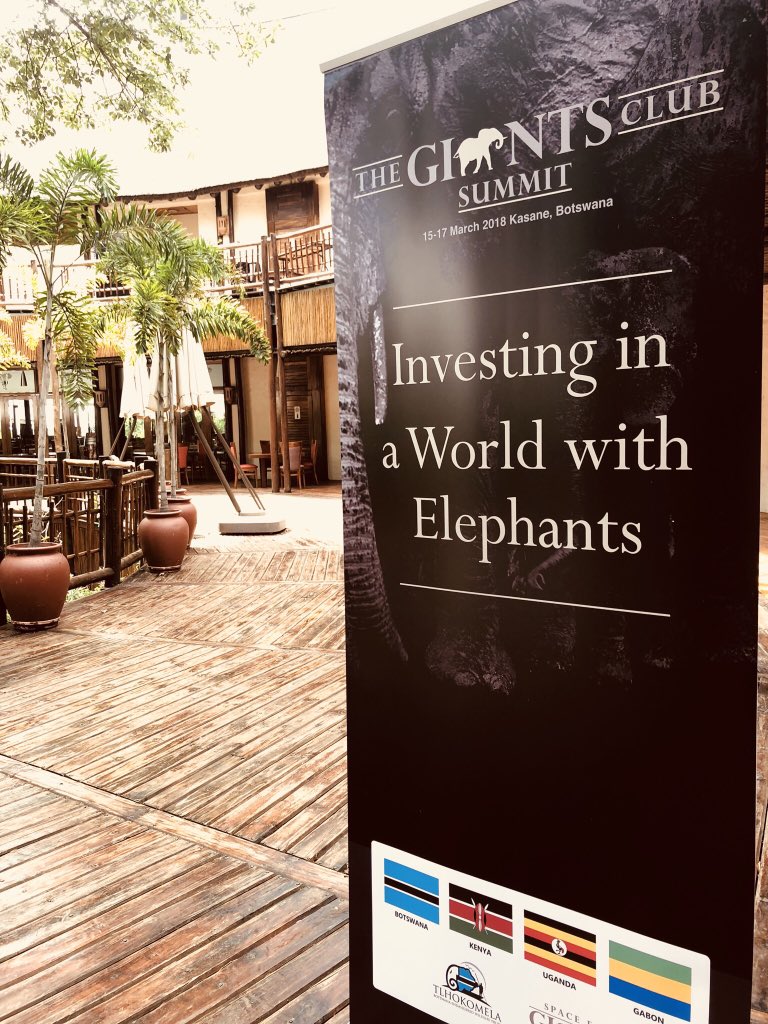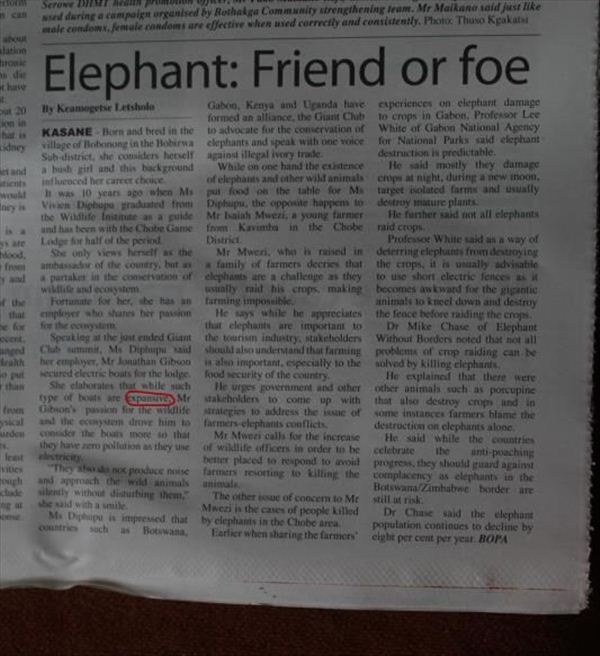[Editor’s note:] The 2018 Giant Club Summit ended in Botswana recently. Representative from CBCGDF attended the summit, with leaders from Asia, Africa, North America and Oceania, and others from all walks of life, circled the protection of wild elephant populations and biodiversity in Africa, and the initial success of “Ivory Ban” in China. the topics were wonderfully shared and communicated in depth. Several reports from the frontline of the summit are presented to the readers by CBCGDF’s representative. These lively and intriguing tidbits make us feel like hearing the voices of the local people in Botswana: their true views on the summit and the issues they face. This also undoubtedly contributes to strengthening the importance of the implementation of the “Ivory Ban”, and it is also the original driving force for the protection of the elephant population and biodiversity. The following is the first report, shared with Mr. Fred Dubee, and it has been published in the Botswana Daily News. Its author is Ms. Keamogetse Letsholo from Kasane, where the summit was held.
Elephant: friend or foe
By Keamogetse Letsholo
Kasane – Born and bred in the village of Bobonong in the Bobirwa Sub-district, she considers herself a bush girl and this background influenced her career choice.
It was 10 years ago when Ms Vivien Diphupu graduated from the Wildlife Institute as a guide and has been with the Chobe Game Lodge for half of the period.
She only views herself as the ambassador of the country, but as a partaker in the conservation of wildlife and ecosystem.
Fortunate for her, she has an employer who shares her passion for the ecosystem.
Speaking at the just ended Giant Club summit, Ms Diphupu said her employer, Mr Jonathan Gibson secured electric boats for the lodge.
She elaborated that while such type of boats are expansive, Mr Gibson’s passion for the wildlife and the ecosystem drove him to consider the boats more so that they have zero pollution as they use electricity.
“They also do not produce noise and approach the wild animals silently without disturbing them,” she said with a smile.
Ms Diphupu is impressed that countries such as Botswana, Gabon, Kenya and Uganda have formed an alliance, the Giant Club to advocate for the conservation of elephants and speak with one voice against illegal ivory trade.
While on one hand the existence of elephants and other wild animals put food on the table for Ms Diphupu, the opposite happens to Mr Isaiah Mwezi, a young farmer from Kavimba in the Chobe District.
Mr Mwezi, who is raised in a family of farmers decries that elephants are a challenge as they usually raid his crops, making farming impossible.
He says while he appreciated that elephants are important to the tourism industry, stakeholders should also understand that farming is also important, especially to the food security of the country.
He urges government and other stakeholders to come up with strategies to address the issue of farmers-elephants conflicts.
Mr Mwezi calls for the increase of wildlife officers in order to be better placed to respond to avoid farmers resorting to killing the animals.
The other issue of concern to Mr Mwezi is the cases of people killed by elephants in the Chobe area.
Earlier when sharing the farmers’ experiences on elephant damage to crops in Gabon, Professor Lee White of Gabon National Agency for National Parks said elephant destruction is predictable.
He said mostly they damage crops at night, during a new moon, target isolated farms and usually destroy mature plants.
He further said not all elephants raid crops.
Professor White said as a way of deterring elephants from destroying the crops, it is usually advisable to use short electric fences as it becomes awkward for the gigantic animals to kneel down and destroy the fence before raiding the crops.
Dr Mike Chase of Elephant Without Borders noted that not tall problems of crop raiding can be solved by killing elephants.
He explained that there were other animals such as porcupine that also destroy crops and in some instances farmers blame the destruction on elephants alone.
He said while the countries celebrate the anti-poaching progress, they should guard against complacency as elephants in the Botswana/Zimbabwe border are still at risk.
Dr Chase said the elephant population continues to decline by eight per cent per year. BOPA



(source: spaceforgiants)

(source: Fred Dubee)
by/ Niu Jingmei
